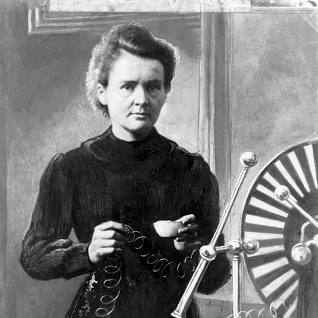
Marie Curie
Throughout history, the world has been shaped by the brilliance and dedication of notable scientists whose groundbreaking discoveries and innovations have transformed our understanding of the universe. Among them, Marie Curie stands as one of the most influential figures in the history of science.
Her unparalleled contributions to the fields of physics and chemistry not only revolutionized our understanding of radioactivity but also laid the groundwork for future generations of scientists. This essay will explore the life, work, and legacy of Marie Curie, highlighting her key contributions and the lasting impact they have had on the scientific community and society as a whole.
Early Life and Education:
Born as Maria Skłodowska in Warsaw, Poland, on November 7, 1867, Marie Curie was raised in an intellectual and patriotic family that valued education and learning.
Despite facing numerous challenges as a woman aspiring to pursue higher education, Curie’s determination and passion for science led her to move to Paris in 1891 to study at the prestigious Sorbonne University. There, she met Pierre Curie, a fellow scientist whom she later married, forging a scientific partnership that would change the course of history.
Discovery of Radioactivity:
Marie Curie’s most groundbreaking work came in the field of radioactivity. Alongside her husband, she conducted extensive research on uranium rays, which led to the discovery of two new elements, polonium (named after her native Poland) and radium. The concept of radioactivity, which emerged from their experiments, challenged the prevailing beliefs about the nature of atoms and fundamentally transformed the understanding of matter.
Recognition and Nobel Prizes:
In recognition of her significant contributions to science, Marie Curie was awarded two Nobel Prizes. In 1903, she became the first woman to receive a Nobel Prize when she, along with Pierre Curie and Henri Becquerel, was awarded the Nobel Prize in Physics for their research on radioactivity. In 1911, she claimed her second Nobel Prize, this time in Chemistry, for her discovery of radium and polonium, cementing her position as a pioneering scientist and an inspiration for future generations of women in science.
Impact on Medicine and Technology:
Marie Curie’s discoveries in radioactivity had far-reaching implications for medicine and technology. During World War I, she developed mobile X-ray units, called “Petites Curies,” which played a vital role in assisting wounded soldiers. These units revolutionized medical diagnosis and treatment, saving countless lives and ushering in a new era of medical imaging.
Furthermore, Curie’s work with radioactive isotopes laid the foundation for modern radiation therapy in the treatment of cancer. Today, radiotherapy is a common and essential approach in the fight against cancer, directly impacting the lives of millions of patients worldwide.
Legacy in Science and Women Empowerment:
Marie Curie’s impact extends beyond her scientific achievements. As a trailblazer for women in a male-dominated field, she inspired countless aspiring female scientists to pursue their dreams despite societal barriers. Her relentless pursuit of knowledge, passion for science, and unyielding determination remain an enduring beacon for women worldwide, proving that gender should never be a hindrance to excellence and success in science.
Curie’s legacy is evident in the growing number of women scientists and researchers who continue to break barriers and contribute to various scientific disciplines. Organizations and initiatives in her honor, such as the Marie Curie Actions in the European Union, have been established to support and promote gender equality in research and education.
Continuing Impact in Modern Science:
Marie Curie’s impact on science is still felt today. Her discoveries have paved the way for numerous advancements in nuclear physics, chemistry, and medicine. Radioactive isotopes, a product of her research, are widely used in various fields, including industry, archaeology, and environmental science. Moreover, the principles of radioactivity continue to be fundamental in understanding nuclear reactions and energy generation, with applications in nuclear power and particle physics.
Conclusion:
Marie Curie’s contributions to science and her indomitable spirit have left an indelible mark on the world. Her pioneering research in radioactivity, alongside her husband Pierre Curie, continues to shape modern science and technology, benefiting medicine, industry, and society as a whole.
Beyond her scientific achievements, Curie’s legacy as a role model for women in science remains an inspiration for generations of young scientists, empowering them to strive for excellence, break barriers, and contribute to the advancement of human knowledge.
The impact of Marie Curie’s work serves as a reminder that passion, dedication, and the pursuit of knowledge can lead to extraordinary accomplishments, regardless of one’s gender or background. Her life’s work stands as a testament to the power of human curiosity and determination in shaping a brighter and more enlightened future for all of humanity.
By: Tanisha Sethi
Write and Win: Participate in Creative writing Contest & International Essay Contest and win fabulous prizes.


